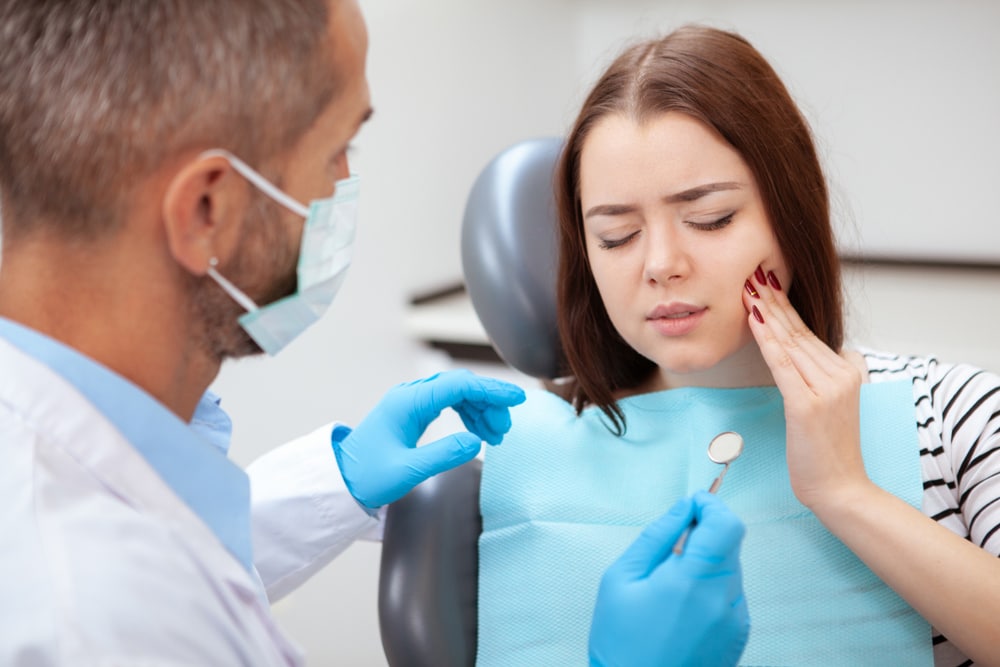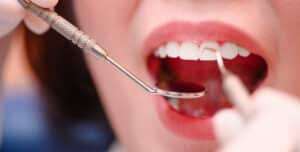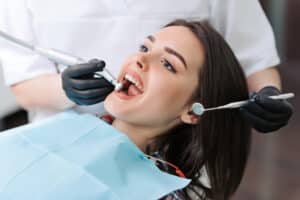Imagine you’re enjoying a lovely Sunday afternoon barbecue with your family. Suddenly, you bite down on an unexpected piece of bone and a sharp pain shoots through your mouth. You’ve cracked a tooth and the pain is unbearable. Dental emergencies like this can happen at any time, and knowing how to respond can make all the difference. In this guide, we’ll explore common dental emergencies, the role of your dentist and how to prevent these situations.
Recognising The Most Common Dental Emergencies
Dental emergencies can range from severe toothaches to cracked or broken teeth and gum infections. Each of these situations requires immediate attention to prevent further complications.
- Severe Toothaches: This is not your average toothache. The pain is intense and persistent, often accompanied by swelling around the tooth and a fever.
- Cracked or Broken Teeth: This can result from a fall, a blow to the face or biting down on a hard object. Symptoms include sharp pain when biting down and sensitivity to hot or cold temperatures.
- Gum Infections: Also known as periodontal abscesses, these infections occur when food gets trapped between the gum and tooth. Symptoms include painful swelling, a bad taste in the mouth and sometimes fever.
The Role Of Your Dentist In Dental Emergencies
In the event of a dental emergency, your dentist plays a crucial role:
- Guidance and Advice: Your dentist can provide advice on how to manage your dental emergency until you can get professional help.
- Immediate Pain Relief: Dentists can provide immediate pain relief through medications or treatments, helping to alleviate discomfort.
- Damage Repair: For cracked or broken teeth, a dentist can perform procedures to repair the damage and prevent further complications.
Toothache Troubles: When To See Your Dentist Immediately
- Extreme Pain: While mild tooth discomfort can often be managed with over-the-counter pain relievers, a severe toothache that persists for more than a day or two may indicate a more serious issue that requires immediate attention.
- Swelling, Redness and Fever: These symptoms, along with an intense toothache, could signal an abscess or infection that needs immediate treatment.
- Difficulty Eating or Drinking: If a toothache is making it difficult to eat or drink, this is a clear sign that you need to see your dentist as soon as possible.
Pain-free Dental: Handling Emergencies Comfortably
Dental emergencies can be stressful and painful, but modern dentistry has made it possible to handle these situations comfortably. Dentists can use anaesthesia and other pain management techniques to ensure patients are as comfortable as possible during emergency procedures. From local anaesthetics to sedation dentistry, these methods help to alleviate anxiety and pain, making the experience much more bearable.
Preventing Dental Emergencies: Effective Oral Care Habits
While not all dental emergencies can be prevented, maintaining good oral hygiene can significantly reduce the risk:
- Regular Brushing and Flossing: This is the cornerstone of good oral health. It helps to remove plaque, preventing tooth decay and gum disease.
- Regular Dental Check-ups and Cleanings: Regular visits to your dentist can help detect potential issues early before they become emergencies.
- Healthy Diet: A diet low in sugar and high in fruits, vegetables and dairy can help to keep your teeth and gums healthy.
- Use of Mouthguards: If you participate in sports or activities that could result in a blow to the face, wearing a mouthguard can protect your teeth from injury.
We’re Here To Help
At Mittagong Dental Care, we are committed to providing comprehensive dental care for families throughout Mittagong. We understand that dental emergencies can be stressful and we’re here to help. Whether it’s a severe toothache or a cracked tooth, we offer same-day emergency appointments to ensure you get the care you need when you need it. We also provide a range of preventative services to help keep your teeth and gums healthy. So why wait? Get in touch via our contact page or give us a call to book an appointment.



